If you've ever faced a challenge in securing the accommodations you need, you know how important it is to communicate clearly and effectively. Writing a special request letter is your opportunity to explain your situation and express your needs directly. With just the right tone and a well-structured approach, you can significantly increase your chances of approval. So, let's dive into how to craft the perfect letter to make your request stand outâkeep reading to learn more!
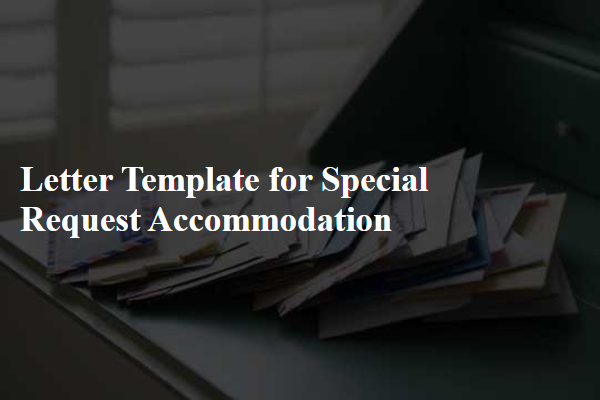
Clear explanation of the request
Special request accommodations are crucial for individuals with specific needs, such as accessibility in public facilities or additional support in educational settings. Clear documentation is essential to communicate these requests effectively. For instance, a wheelchair user may require ramps (instead of stairs) and wide doorways (minimum of 32 inches) for easy access. Similarly, a student with a learning disability might need additional time (typically 50% more) during exams to enhance focus and performance. Providing precise details, such as dates (for an event or term), locations (specific venues or classrooms), and the nature of the required modifications, enables better preparation and ensures compliance with accessibility standards.
Relevant medical or personal details
Individuals may require special accommodations due to specific medical conditions or personal circumstances impacting their daily activities or work performance. For instance, individuals with mobility impairments might need wheelchair-accessible facilities, while those with allergies may require scent-free environments. Students with learning disabilities, such as dyslexia, often seek additional time for exams to ensure fair assessment. Additionally, individuals experiencing anxiety disorders may benefit from a quieter workspace to enhance focus and reduce stress levels. Providing comprehensive documentation from healthcare professionals can substantiate these requests, ensuring the necessary support is established for optimal functioning and well-being.
Supporting documentation or evidence
In the realm of special request accommodations, providing supporting documentation is crucial for validation. Relevant evidence may include medical records, psychologist evaluations, or official letters from healthcare professionals detailing specific needs or conditions. For example, a letter from a licensed therapist stating that an individual diagnosed with anxiety requires a quiet room for optimal functioning enhances the request's credibility. Educational institutions often require documentation compliant with the Americans with Disabilities Act (ADA), which necessitates corroborating evidence for reasonable accommodations requested by students. Additionally, ensuring that documentation includes specific diagnoses, treatment history, and recommendations reinforces the foundation of the accommodation request significantly.
Desired outcome or accommodation specifics
The special request for accommodation entails a designated parking space for individuals with disabilities at the main entrance of the City Hall in Springfield, particularly for events such as community meetings and local elections. This parking space, ideally located within 20 feet of the entrance, enhances accessibility for physically challenged citizens, ensuring dignified entry and exit. Furthermore, the request emphasizes the installation of a clear, ADA-compliant sign indicating the reserved status of the parking spot, alongside the provision of a temporary ramp to facilitate wheelchair access. A well-defined pathway leading from the parking area to the entrance is also critical to prevent potential hazards and ensure a smooth transition for users.
Contact information for further discussion
For individuals seeking special request accommodations, providing clear contact information is essential. This may include the individual's full name, phone number, and email address. For example, if John Smith requires a wheelchair-accessible room at the Grand Hotel in New York City, he should include his phone number, (555) 123-4567, and email, john.smith@email.com, ensuring easy communication for further discussion regarding his specific needs. Additionally, referencing the check-in date, such as April 15, 2024, and the duration of the stay enhances clarity in correspondence regarding the accommodation request.
Letter Template For Special Request Accommodation Samples
Letter template of special request for flexible scheduling accommodation.
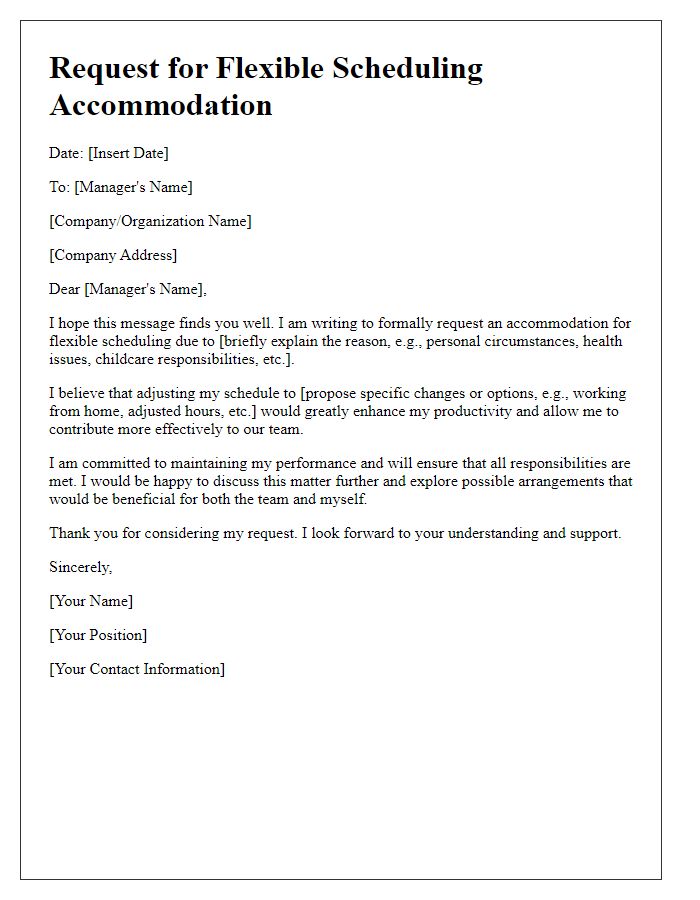
Letter template of special request for assistive technology accommodation.
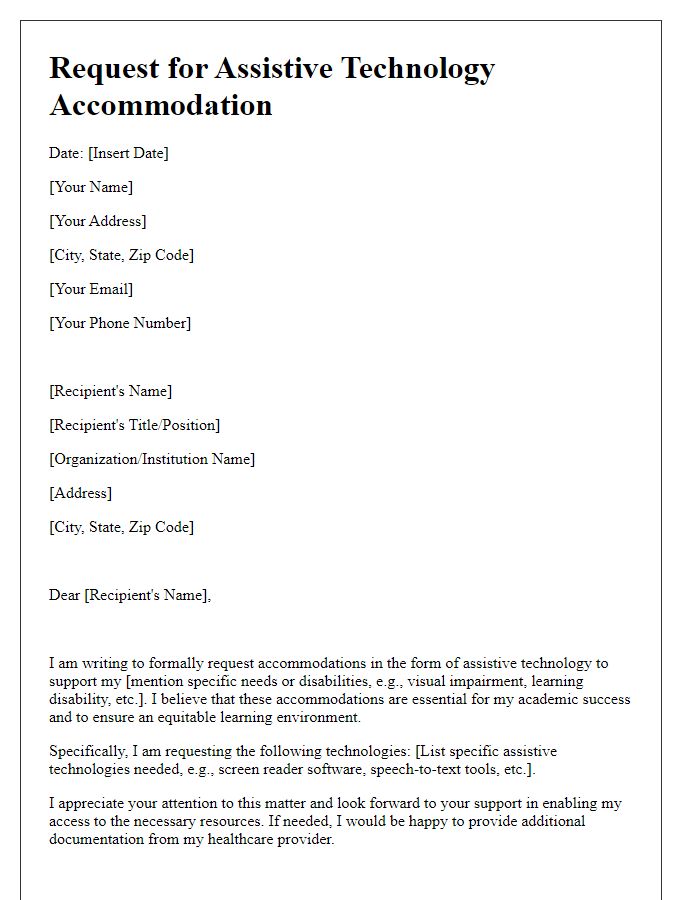

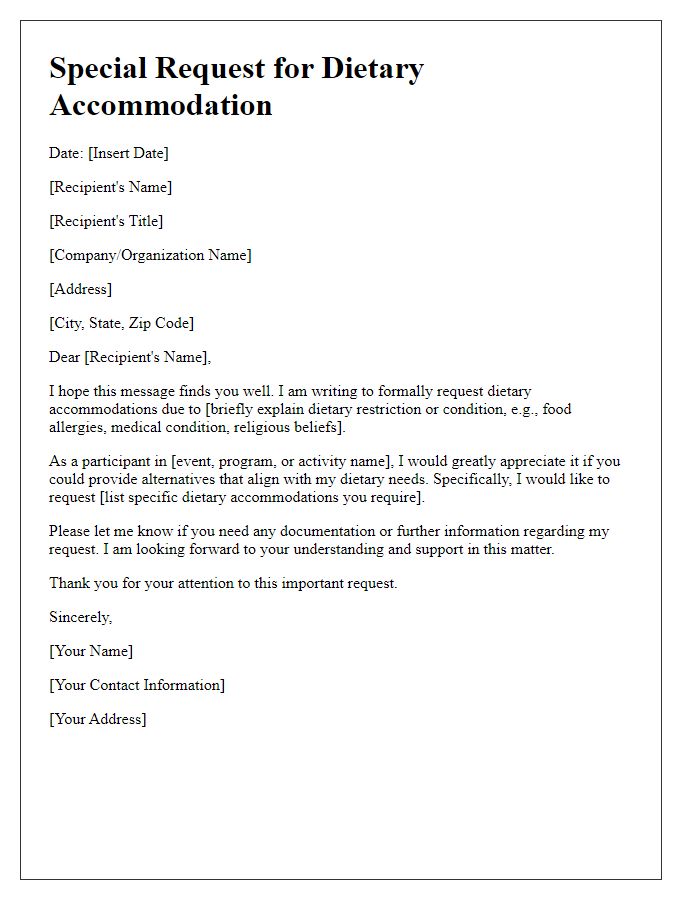
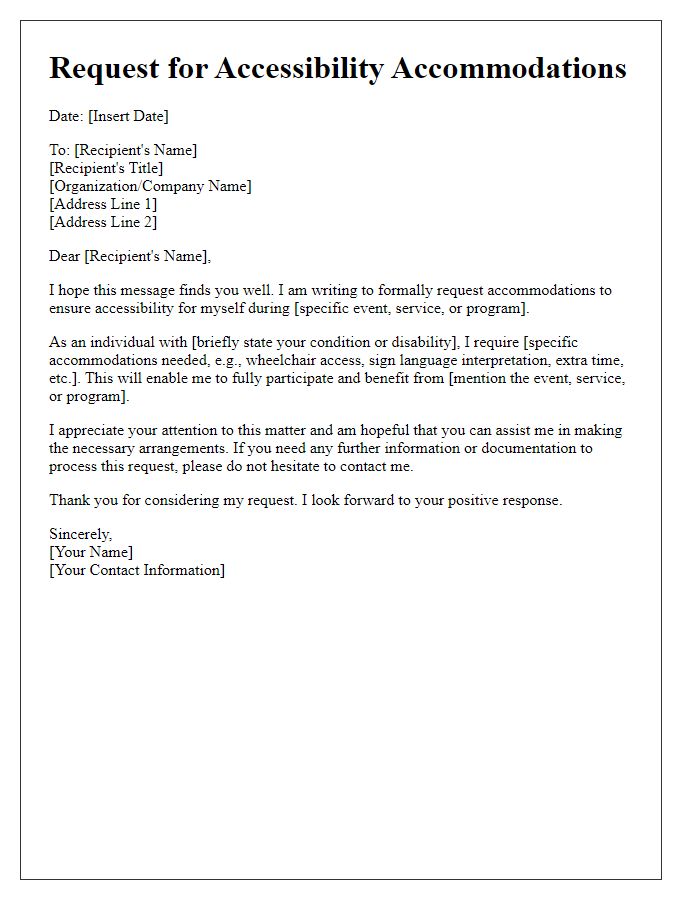
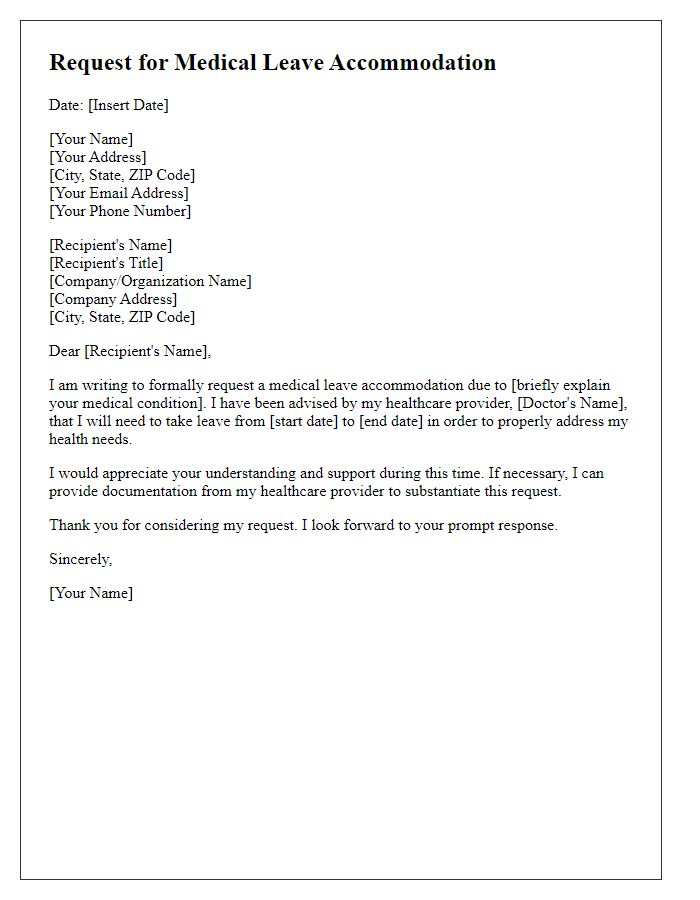
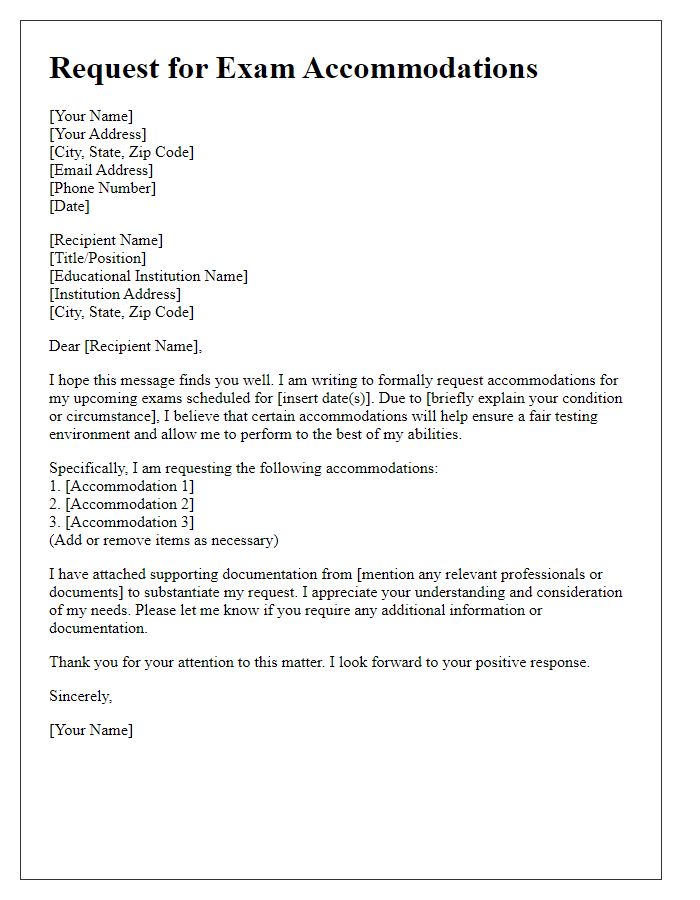
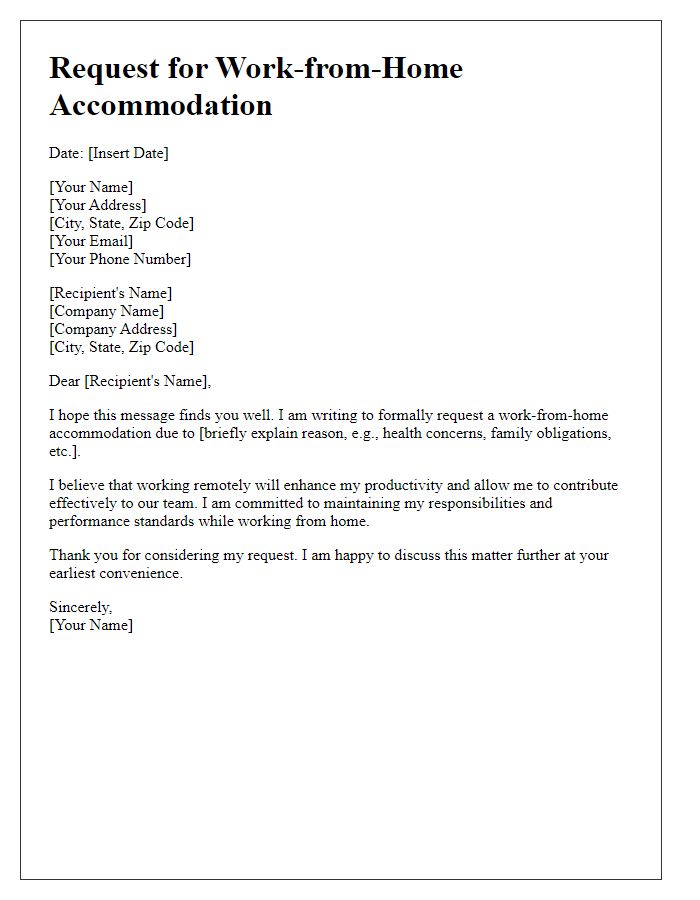
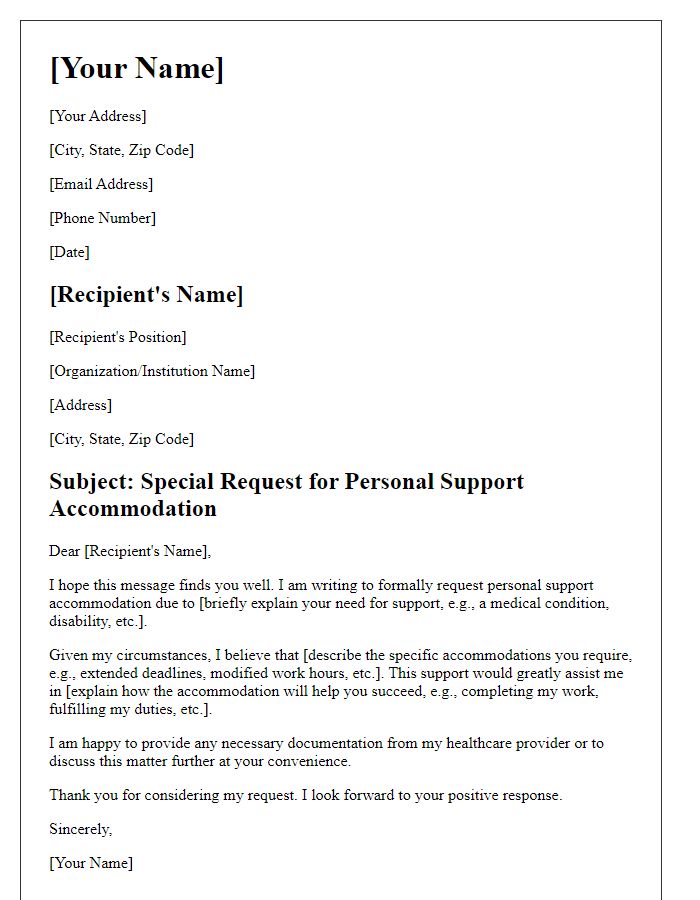
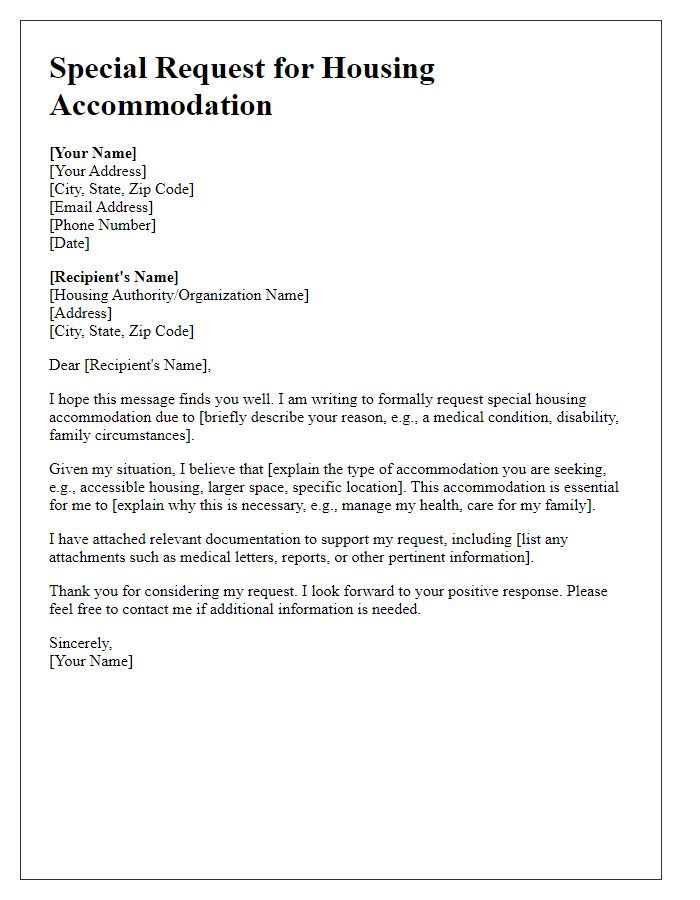
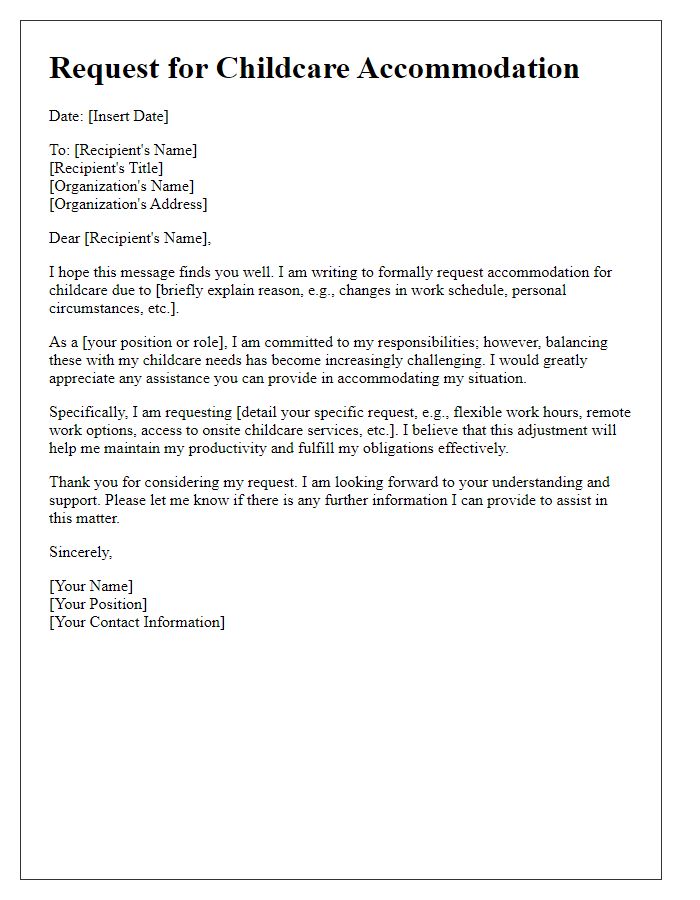


Comments